Our ongoing series of reports on the current state of UK comics self-publishing – grouped together under the banner term of ‘State of the Small Press Nation’ – have certainly provoked debate and discussion this year on the issues raised by creators and micropublishers on the self-publishing circuit. To date in this ongoing feature we have discussed questions of audience growth, the expansion of shows and fairs, and reaching new readers. You can catch up with all of the ‘State of the Small Press Nation’ entries so far here.
Today we have a Small Press Nation guest blog from comics writer Seán Michael Wilson (Fight the Power! A Visual History of Protests Among the English Speaking Peoples, Goodbye God?: An Illustrated Exploration of Science Vs Religion). Seán responds to some of the thoughts on audience-building and appealing to a larger readership that we ran in the early editions of the columns but from a radically different perspective. Below he shares his thoughts on solutions to some of the talking points we have featured that fall outside of the confines of a capitalist system…
***
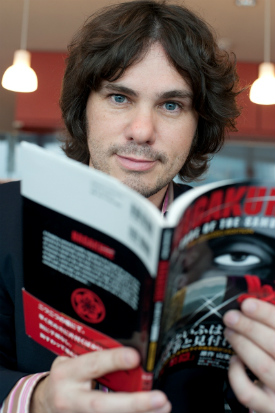 There is a lot of discussion here about how we can arrange things in terms of readers and money and sales, etc. All of these are important and useful – but there is one aspect which is, I think, the main cause of most of these problems: capitalism. ‘The Big C’, as I like to call it. Most of the views and discussions I have seen about the economy of comics are based on the idea that what we need is more READERS; the basic problem is a lack of readers. I want to say something quite radical: actually we have enough readers already. What we lack is PROFIT. And by that I do not mean therefore we need to get more profit. What I mean is that the problem is the very idea of profit itself. The need, the compulsion, to make profit within a capitalist style economy. That’s our real problem.
There is a lot of discussion here about how we can arrange things in terms of readers and money and sales, etc. All of these are important and useful – but there is one aspect which is, I think, the main cause of most of these problems: capitalism. ‘The Big C’, as I like to call it. Most of the views and discussions I have seen about the economy of comics are based on the idea that what we need is more READERS; the basic problem is a lack of readers. I want to say something quite radical: actually we have enough readers already. What we lack is PROFIT. And by that I do not mean therefore we need to get more profit. What I mean is that the problem is the very idea of profit itself. The need, the compulsion, to make profit within a capitalist style economy. That’s our real problem.
This is why I say it’s the main problem: because in a capitalist economy the main focus is on making profit. Not on making things people want or need. And it’s a system based on making profit which is controlled by a tiny elite of people who have a huge influence on what gets made. So, in capitalist economy human creative energy – in the arts, sciences, education, etc. – is focused on what will make a profit. So, if some good comic does not sell enough then it does not make enough profit, and it’s cancelled. Or some good idea never gets made in the first place because the publisher knows that it probably won’t sell enough. It won’t make enough profit. They would like to publish it but they can’t. The ‘economic reality’ stops them. How many of us comic book creators have heard that from publishers? How many of us have therefore had our great ideas wither on the vine?
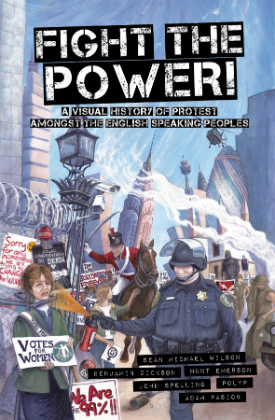 So, if this profit obsession is such a barrier to our creativity, in many fields, why don’t we get rid of it? Why not set up another, better system? Some think because we can’t. We are not capable of any system other than ‘the Big C’. I don’t have time to go into that now, so let’s presume that we CAN come up with a better, alternative system. Probably one that draws on elements of socialism and anarchism and green politics, etc. Let’s just call it a ‘Better System’. In that better economic system private profit will not be the main focus. Instead we will focus all of our energies towards creating good societies, towards creating well-being, healthy lifestyles, good education etc – all the things that we human beings need for a decent standard of life. And art is part of that. Comics are part of that. So, in that better society what will matter is not ‘Will this comic make enough profit?’, but ‘Is this a good comic? Is it interesting? Is it funny? Is it moving?. When those are the criteria comics will flourish far more than now, when the poison of profit no longer taints our efforts.
So, if this profit obsession is such a barrier to our creativity, in many fields, why don’t we get rid of it? Why not set up another, better system? Some think because we can’t. We are not capable of any system other than ‘the Big C’. I don’t have time to go into that now, so let’s presume that we CAN come up with a better, alternative system. Probably one that draws on elements of socialism and anarchism and green politics, etc. Let’s just call it a ‘Better System’. In that better economic system private profit will not be the main focus. Instead we will focus all of our energies towards creating good societies, towards creating well-being, healthy lifestyles, good education etc – all the things that we human beings need for a decent standard of life. And art is part of that. Comics are part of that. So, in that better society what will matter is not ‘Will this comic make enough profit?’, but ‘Is this a good comic? Is it interesting? Is it funny? Is it moving?. When those are the criteria comics will flourish far more than now, when the poison of profit no longer taints our efforts.
There is also the issue of WHO decides. In the Big C that tiny elite of the power get to decide most of what happens in our economy. In a better system decisions about what gets made and how we make it, and how we use our resources, will be made people in general – by us all, as equals, working together in some kind of local democratic council type groups. Again, I’ve no space here to say much more about how they would work. Anyone interested to know more can mail me. Basically, we comic book folk could bring our ideas to the arts council of our area and try to persuade them that the book is interesting. It won’t be some elite group of councillors who decides – that would be little better than things are now. It’s a council, or collective or community that WE are also an equal member of, and that decides things in a truly democratic way.
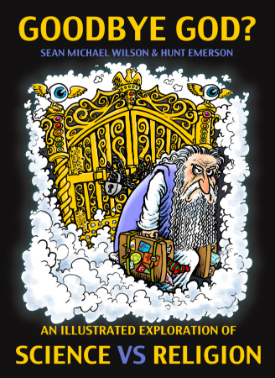 I said we have enough readers. A Facebook study found that 24 million Americans have noted ‘comics’ as a an area of interest on their Facebook accounts. What this means is that we already have enough people interested to read comics to influence those local arts groups that comics are something worth focusing some of our limited resources into. If there are, say, just 1000 people interested to read your comics that’s plenty – that’s one thousand real flesh and blood people, all of who matter, all of whom are part of society and get a say in how it’s run. We already have enough people interested in comics to allow for many, many comics to be given the backing of those arts councils up and down the country. And by backing I mean money, yes! In this case meaning some kind of credits for ‘useful work done for the community’. Credits that can be used for your living expenses, etc. Again, I’ve no space to go more into how that would work.
I said we have enough readers. A Facebook study found that 24 million Americans have noted ‘comics’ as a an area of interest on their Facebook accounts. What this means is that we already have enough people interested to read comics to influence those local arts groups that comics are something worth focusing some of our limited resources into. If there are, say, just 1000 people interested to read your comics that’s plenty – that’s one thousand real flesh and blood people, all of who matter, all of whom are part of society and get a say in how it’s run. We already have enough people interested in comics to allow for many, many comics to be given the backing of those arts councils up and down the country. And by backing I mean money, yes! In this case meaning some kind of credits for ‘useful work done for the community’. Credits that can be used for your living expenses, etc. Again, I’ve no space to go more into how that would work.
Lastly, in that better society, it is highly likely that that amount of readers of comics will go up. Because there will also be less of a barrier of having to BUY comics. Many of those councils backing comics that we creators could make would be available for free, just like the local play park is free. So, many more readers will check them out. And we creators would not get MORE credits if our book is read by 100,000 people instead of just 1,000. So, there would be far less of a problem of the silly desire to become ‘rich and famous’ too. The focus would be on something very simple, but rather healthy: on making good comics that people value. And since the horrible profit issue would be out of the way we would all be more free to focus on experimenting, flexing our artistic muscles, trying new ideas. Or simply making good comics.
I was interviewed on a radical podcast recently, and we got to discussing the politics of The Walking Dead TV series, and what kind of economy and society then had after the zombies started. On the spur of the moment I summarised it by saying: ‘The zombies killed capitalism!”
If they can do it, so can we.
For more on Seán Michael Wilson’s work visit his site here. Goodbye God?: An Illustrated Exploration of Science Vs Religion is published by New Internationalist at the end of April.
For regular updates on all things small press follow Andy Oliver on Twitter here.






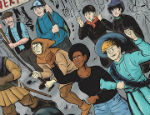

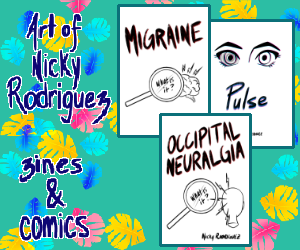





Every middle class communist revolutionary in art school dreams of a magical society where the revolution comes and they are awarded with the position of state sponsored artist.
The solution of arts councils proposed in this article is no different from the current one-a tiny group of elite tastemakers at the top get to decide what gets made and what doesn’t. If people don’t want to read it, or think it’s good, it won’t matter, because the elite arts council decided so.
If your comic doesn’t sell, the logical solution is not to overthrow Western capitalist society. The logical solution is to get better at making comics, and make something that people want to read.
You can make better comics and attempt to survive in the system you already live in, or you can spend your time plotting the glorious revolution. Good luck.
To answer those points, and for people in general: critics of an attempt to make a better society normally come up with 4 or 5 cliches to discount the effort. And most of those are very weak points, actually. Generally they don’t hold up to critical consideration. I mention these here:
http://radicalfun.weebly.com/5-communist-cliches–5-cool-corrections.html
As to these specific points:
‘Arts council aspect’ – Daniel, did not not notice in the article that these would NOT be controlled by an elite group? I addressed that point already. There ARE ways in which such groups can be truly democratic. We would all be involved, equal members. Many people, like Chomsky, have thought about it already and some systems have been created to avoid that elite control. It can be done. I can give references to check out those plans, if you wish. The ‘Parecon’ system of Michael Albert, et al, is a very well worked out one, for example.
‘Make something people want to read’ – this is a big debate, and not a simple issue. Does some high selling comic, TV show, movie etc become famous because people want to read it…or because the large companies behind it have the muscle to push it, marketing it, get it onto platforms, etc? People like me believe that the current capitalist system actually holds back creativity and distorts what consumers want, because of the profit and power aspects mentioned above. In my view, the ‘better system’ I mention here would give us MORE freedom to make good comics, to develop as creators.
‘You can make better comics and attempt to survive in the system you already live in, or you can spend your time plotting the glorious revolution.’ – There is a third option: we can do BOTH!
Profit is certainly a gatekeeper to the market. But while there is a certain “profit-philosophy” that says work that is toothless and inoffensive will reach a lot more people (and to some extent that is true), profit is not in itself an enemy to art.
As artists we want to reach as many people as we can, we want to be respected and acknowledged for our art and we want to change people’s minds.
In short: we want to sell our stuff. Profit is a measure of that.
If you don’t make a profit there are two main reasons:
First, your work isn’t connecting with the right market, but if it did, you’d probably sell a decent volume.
Second, your work is not good enough. People pick it up, read a bit of it and put it back because they all think it’s crap.
Capitalism may be to blame in the first case, for not making enough of an effort to sell the slow sell-through items and focusing too much on the quick sell-through perennials on their bestseller lists. It used to be that there was an ethos among booksellers that they sold anything but pushed quality.
But in the second case? I think we should be thankful that profit is a gatekeeper for those.
We have a book subsidy program in my country where books deemed of an acceptable quality are bought in for libraries, 1000 to 2000 copies. Which is mostly fine, but there is also some utter crap on that buy-in list that gathers dust on the shelves and not even the librarians read. Collections of modern poetry, for instance.
But every incompetent hack out there thinks his books belongs in the first category, being somehow unfairly blocked by the system. There was a guy on Bleeding Cool a little while ago hawking his “comics course” – using as his “promotion” a comic of his about some barbarian that quite frankly convinced everyone that he needed to attend a comics course or 12, not teach one.
Yes, profit as a gatekeeper can be a harsh opponent, even when you’ve got great material, but many readers equal a profit so basically a lack of appeal to readers is a part of that. Or what the editors / publishers fear will be a lack of appeal to the readership they are familiar with and cater to.
The real problem is when our ideas as creators do no inspire confidence in the people who are supposed to finance, print and sell our work to the public.
Those are fears that Capitalism itself is indifferent to. If there are people who want a product you’re making and a profit can be made (i.e. enough people want it) then Capitalism is all for it.
People, however, are timid and risk-averse. As I’ve pointed out in the past, if human nature was anything like what Capitalism assumes and requires it to be, the world would be a happy place. No fear, no violence, no deceit or coercion? That would be Paradise.
Profit isn’t the enemy. Bad business is.
Knut – thank you for the nice long points.
Generally, I dont agree that the problem is bad business. Its a bad economic system in the wider sense. My main concern is in the capitalist system itself, not so much the existence of ‘profit’, since that can mean different things in different systems, so it could be seen as ‘gain’ or ‘benefit’. But the way it operates in capitalism is very much the enemy of art, and also science and any human creativity. Profit in its capitalist form, and as i touch on a bit in the above quite short article, the power structure of capitalism. These hold us back a lot. And the irony is that we are led to believe that capitalism actually frees up creative effort. I consider that false.
As to your points:
‘we want to sell our stuff. Profit is a measure of that. ‘
– Actually, I don’t want sell my books. I dont think any artist WANTS to SELL their work. They want it enjoyed and shared and appreciated, but that is not ’selling’. We HAVE to sell it in the capitalist system – its something we are forced into in order to survive. and we are compelled to because that selling/consumption is what creates the profit and power for the elite. In this system, Profit is a measure of how much we have lined the already bulging pockets of the elite. If our real aim is to have our work enjoyed and shared and appreciated then profit is not at all necessary in order to measure how well we have achieved that. It can be, in this ‘better system’ i hope we are all smart enough to create, be measured in quite other ways. Much better ways.
‘If you don’t make a profit there are two main reasons’:
– Different quality of art is going to be there in any social system, so the ‘good enough or not’ point is not specifically an issue of capitalism, i agree. But the ‘right market’ point very much is. Big selling books and movies and music etc are to a very large extent at that level because of the power of the advertising, marketing, media connections, elite power connections,etc that propel those products to a huge audience. And manipulate that audience, con them, massage their consumer habits and views. Why? For profit and power. And the various other unhelpful tactics of companies that you mention are because they need, are forced, to focus on profit… and simply dont have enough freedom to focus on making GOOD books/movies/music.
I’ll say more later! Tusen Tak….
Thanks again Daniel. Sorry my reply below is rather long, I wanted to try to address all or most of your points:
“I’m an artist. I love selling my work…..’
-I think that is a bad habit we have all got into, of associating appreciation with money. “It isn’t a bad thing when an artist wants people to enjoy their work.” Did i say it was? That is a completely different point. Of course we enjoy when people APPRECIATE our work – my point is that there is no 100% NEED for a sale, for an exchange of money, for profit, to happen for that appreciation to be shown. That is a fact, surely?
In the current system, exchange of money is normal, yes, and it does mean that the readers enjoy the books or value them somehow. Yes. but only in the current system, its not a 100% necessity. Plants don’t grow without rain and sun – thats a necessity. But books CAN be made without money/selling. There are better ways of doing it, that don’t hold us back like the current profit focused one does.
“I love when I sell a large amount of my books, as it means my art and story is connecting with a large amount of people. It feels like the hard work I put in to my art and stories ‘pays off.’ “
– It is exactly that pleasant aspect that will be increased in a non-capitalist society. That is my very point. We as artists/writers will be MORE connected to our readers and feel a greater sense of having done something worthwhile. That whole aspect, the central element in creative work, will become hugely more free and powerful once we overcome capitalism. The present system is holding that back, much more than we realise (its a whole other question as to who/what has misled us on these issues!). The need to SELL for profit, in a capitalist system, is holding back the aspect of ‘connection and feeling its worthwhile’. It’s not helping it. We can reach a large enough NUMBER of people, and get that feeling of appreciation, and connection, and having done a good book, without needing the profit/selling/money aspect involved.
“When I have made books in the past that didn’t sell, and didn’t connect with an audience, I didn’t blame capitalism for my failure.”
Actually, in a non-capitalist, better type of society, all the things you support here – adjusting to readers views, working hard, taking responsibility, making good stories, developing skills, etc – will become MORE important than they are now, not less. Those will become the main things we focus on, when we are free of the shackles of the profit/selling/capitalist system which distorts all those efforts towards what will sell and make profit for the elite.
Therefore: “It is better to take responsibility for your self IMO rather than blame capitalism every time you put a book out there that people don’t want to buy.” is a complete miss-understanding of what I am saying.The anarchist system that i prefer is based on taking responsibility for your actions, life, work, community – that is its basic, bedrock point of view. Thats a good one line definition of anarchism: ‘a system of organising society based on taking responsibility for your actions, life, work, community.’
As to why people don’t want to book A or B book, that is a complicated issue. The key point here would be the distortion of people’s consumption habits by big corporations and media, and distribution channels, etc. We are not in a situation of ‘well informed rational consumers’ when there is such massive power of marketing, advertising, media, etc to influence consumers decisions. But, again, in the better society i think we are capable of making we really WOULD have ‘well informed rational consumers’. Because one other key element of that system is that we would all be equal ‘consumption/production’ deciders. There would be yearly ‘votes’, if you like, as to what we think our self/family/workplace/community needs in terms of consumption and also what that we can come up with it terms of production. with no distorting influence from marketing/advertising/corporations – none of that crap would exist anymore. we would decide it for ourselves, truly. that is really taking responsibility!
“People can create good work AND make profit without pandering to an audience and sacrificing the quality of their work’
Yes, they can, sure. I hope you can and I hope that i can too. the key point is that we all do it DESPITE the present capitalist system, not because of it. It hinders that aim, it does not help it.
My view is basically this:
1 – It is simply not a necessary aspect to have to SELL our books in order to get those positive aspects of connection and feeling our effort is worthwhile. There are other ways we can organise the production and distribution of works of art. More fruitful ways.
2- The slave like need to make profit via selling in a capitalist system actually holds back the full expression of those positive aspects. It’s specifically a hinderance. So, lets ditch it and make a better system instead.
Nice!